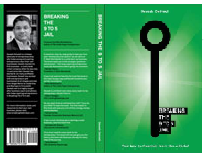How to write an effective business plan…
Posted Under: Business, Planning, Small Business, Startup
Congratulations on deciding to start your own business!! Now, let me tell you that a business plan is a very personal (to the business) and unique document… So, the last thing you want to do is to buy a software for business planning purposes unless you need this business plan simply for the sake of having a business plan on the shelf 🙂
A very simple and practical approach would be:
If yes, then draft a business plan using the free resources like Microsoft template and many more available in the market – this draft initially should include what you have done that makes you sure this will work. This may simply be – I have a contract, I know the business, there will be more, or it may be a thorough market research, traffic counts, industry statistics and the likes. Put the schedule we did in the first place, into a spreadsheet and lay out the rest in whichever format you like.
Remember, a business plan should be very flexible as businesses and the economy changes very frequently and so should our plans to accommodate those changes and make the best use of the opportunities that we are presented. Being flexible also goes with the ongoing development of business plan, periodic updates to the business plan. For example the numbers that were once forecast should be compared with actuals and recorded in the business plan as “Planned Vs Actuals”. Such planned versus actuals analysis also helps you improve your forecasts and do better planning according to the trends and market situation that you just explored…
Last but not the least, your business plan should have an exit strategy. Not every start-up is successful but a well planned exit strategy can definitely mitigate the financial pains of the failure. Look at exit strategy as “worst case”…what happens if the worst happens, how do I get out, what do I do… Having said all that let me also tell you that exit strategy is not always made for worst case. A lot many of us are serial entrepreneurs, who love to start a new business but we do flirt with many more ideas and may decide to start another business, or may not want to continue with the existing business for any given reason, what happens to the business then, how does one get out of it, sell it, partner with someone what? That’s your exit strategy.
In my opinion, this is the most economic and realistic approach to write a business plan and not an off the shelf software which will give you a me-too business plan which to me is of no use as neither am I convinced nor can I convince any investors with that kind of auto-generated plan.
Good luck!





